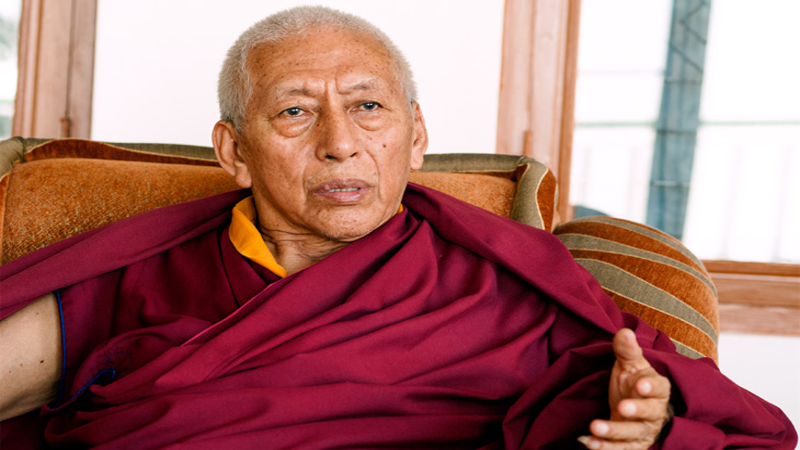The former Prime Minister of exile Tibetan government in India, Honorable Samdhong Rinpoche in recent interviews have expressed his views about the Tibetan monks and nuns right to vote for both the religious and provincial candidates in the elections for Tibetan Parliament in Exile where he said that this right does not invalidate the basic democratic principles. In the interview carried out by Tibetan journalist Lobsang Wangyal, Rinpoche also talks about some other issues.
When Mr. Wangyal asks Samdhong Rinpoche how is the representation of religious sects in the Tibetan parliament relevant or what purpose it serves, Rinpoche explains that from the early stages of exile development, the five religious traditions of Tibet also needed to be united as one, not only in the religious affairs, but also in the social and political affairs. He says that Tibetan unity has to be expressed through the unity of all religious traditions and the unity of the three Provinces (cholkas). He explains that it was the basic idea behind the inclusion of this rule.
Rinpoche then tells why this is still in use, “to represent all of life in the Parliament, the religious traditions would be also there. Because even today, the secularism is very popular all over the world, and particularly in the Western world.”
“In the future, when Tibet becomes more autonomous, we have our own kind of parliament, then, whether religious traditions should represent or not represent, that can be re-examined. But at this moment, I don’t see there is any demerit in it.” Rinpoche concludes his answer to the question.
When the Rinpoche was asked if it is not undemocratic for a person to cast two votes, he tells that voting for two different constituencies only once is interpreted as ‘one man one vote’, so the two votes does not invalidate the ‘one man one vote’ principle.
Rinpoche also expressed shared is views on what are the options to amend this rule, “one way is the religious representatives can be voted on by everyone, not only monks and nuns… the other way is, the monks and nuns choose only their own religious representative, and they are not voting for the cholka representation. And the third option is to remain status quo.”
Besides talking about this issue, the interview also discusses about the last election in Tibetan exile that stirred a lot of controversies, Tibetans opting for Indian passports as well. The complete interview can be read here.







Leave a Reply